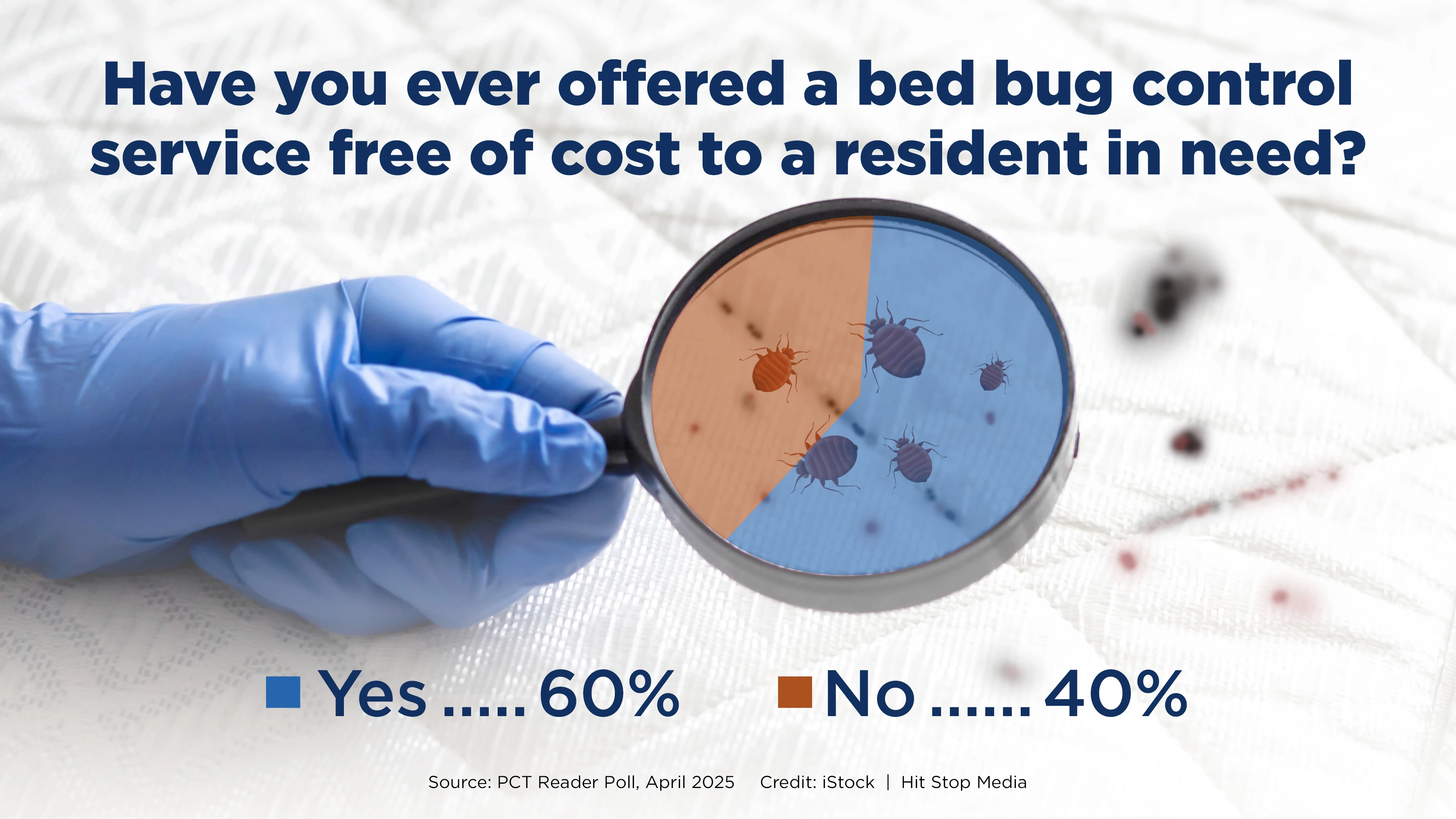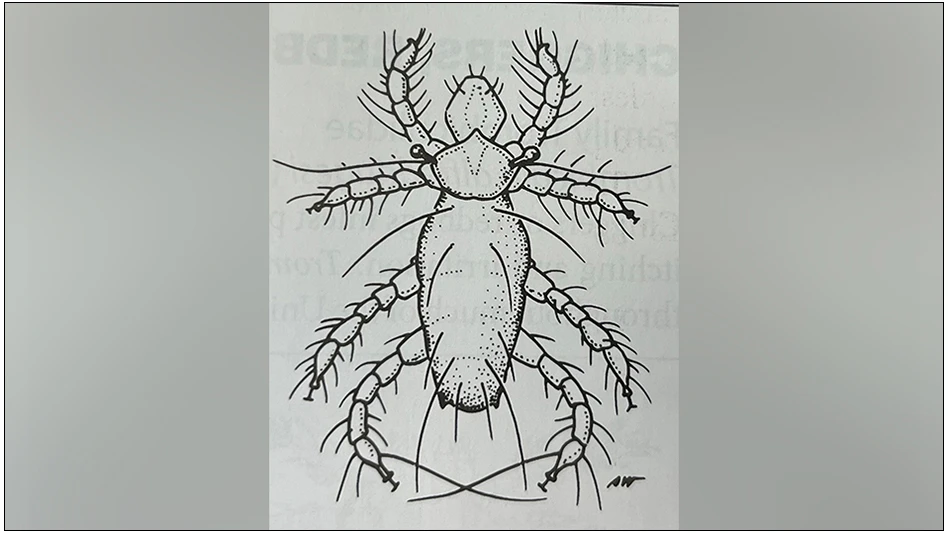Yet selling and implementing IPM to some portions of the public is often easier said than done. While it’s true that there is an increasing number of people that desire fewer (or none at all) pesticide applications around buildings, it is also true a good portion of the public still hires us because we have “professional strength” pesticides that will “protect” their homes or businesses between service visits. Some even believe a strong odor associated with some chemical application is strong protection. In other words, this customer base hires us for our chemicals and not for our knowledge.
REAL-LIFE IPM. For instance, not long ago I inspected a large inner-city high school. At one point during my inspection I started to explain to the school custodial supervisor that if there are no pests, then there was no need for any pesticide applications. But I could tell he was clearly suspicious of this new “IPM” speil and he seemed worried he was being cheated out of his “service.” He then explained to me that the reason they have had no pests at the school for the past few years was because he shows the pest technician where to spray each visit. “IPM, smi-PM. Just spray,” he seemed to say.
Of course he is not alone. Many technicians feel the eyes of these “just spray” customers on them and feel guilty of not delivering a tangible pesticidal application even though they may perform a thorough inspection, evaluate and note conducive conditions, and install and monitor sticky traps — all of which are the most valuable part of the service and serves to protect a client much more so than a technician who merely applies a pesticide application without any inspection or proactive monitoring.
So although we as an industry may be “IPMing” ourselves ad nauseam in meetings, magazine articles and national conventions, one of the major remaining hurdles for us is to educate our customers that they really do need IPM programs and that they actually get more for their money with IPM than with routine, robotic spray or baiting visits. No doubt, this will require an ongoing and persistent effort on our part as an industry.
ABOUT THIS LETTER. The letter below was written (using a fictitious name) in an effort to take the onus off of the pest management professional in having to defend not spraying or applying pesticides as part of the routine service. Also, its intent is to emphasize that the inspection, proactive monitoring and conducive conditions analysis is the most important part of the service. A possible pesticide or non-chemical treatment may also be vital should it be needed, but only as determined by the inspection.
It is important to note that the letter encourages the client to verify the pest management company’s suggestion of purchasing IPM by checking with their appropriate university or any of the various applicable Web sites for information on urban IPM. After all, when it comes to selling and implementing urban IPM programs, an informed customer is the best customer. The letter can be modified to fit your company’s style and procedures. It can be made into door hangers or can be added to various sales brochures. The essential part is that we use such letters and all other means to promote IPM programs and get away from the “let me show you where to treat” mentality.
Dear Valued Customer:
Our goal at Triple Z Pest Management is to provide you with the best pest protection services possible in (your area). Over the past several years, research has shown that the IPM method (Integrated Pest Management) accomplishes this goal best, while being the least disruptive to the environment, people, pets or wildlife.
IPM relies on the following approach:
- Our expert inspection and analysis of your home or workplace for any conditions
that might be conducive towards attracting or causing pest problems (e.g, clogged
gutters, garage doors with gaps, leaking pipes, improper screens, etc). - Using pest monitoring devices to provide early detection of pests between visits.
- Applications of low-impact (yet effective) pesticidal treatments or traps when needed.
Please note: The pest management industry has learned from recent research that routine spraying of indoor baseboards and corners provides little or no “protection” from most of the common ants, cockroaches, perimeter invaders and other pests.
Other information concerning the IPM approach for keeping pests out of your home and workplace via the IPM approach can be obtained from you local Extension Service at (your) State University Department of Entomology or at other sites as listed below.
Should you have any questions, please check with (the customer’s service technician) during our next service visit or call our office at any time!
Helpful Web sites for IPM Information:
- Your State University: www (your local extension entomology department)
- Purdue University: www.entm.purdue.edu
- University of Florida: http://entnemdept.ifas.ufl.edu
- Citizen’s Guide to pest control and pesticide safety:www.epa.gov/OPPTpubs/Cit_Guide/citguide.pdf
Sincerely,
Triple Z Pest Management
Committed to your health, comfort, safety and to the protection of our environment.
555 Main Street • Anytown, USA • 800-555-1212
The author is president of RMC Pest Management Consulting and can be reached at rcorrigan@pctonline.com or 765/939-2829.
WANT MORE?
Enter your email to receive our newsletters.

Explore the September 2001 Issue
Check out more from this issue and find your next story to read.
Latest from Pest Control Technology
- Target Specialty Products, MGK Partner for Mosquito Webinar
- Cockroach Control and Asthma
- FORSHAW Announces Julie Fogg as Core Account Manager in Georgia, Tennessee
- Envu Introduces Two New Innovations to its Pest Management Portfolio
- Gov. Brian Kemp Proclaimed April as Pest Control Month
- Los Angeles Ranks No. 1 on Terminix's Annual List of Top Mosquito Cities
- Kwik Kill Pest Control's Neerland on PWIPM Involvement, Second-Generation PCO
- NPMA Announces Unlimited Job Postings for Members








